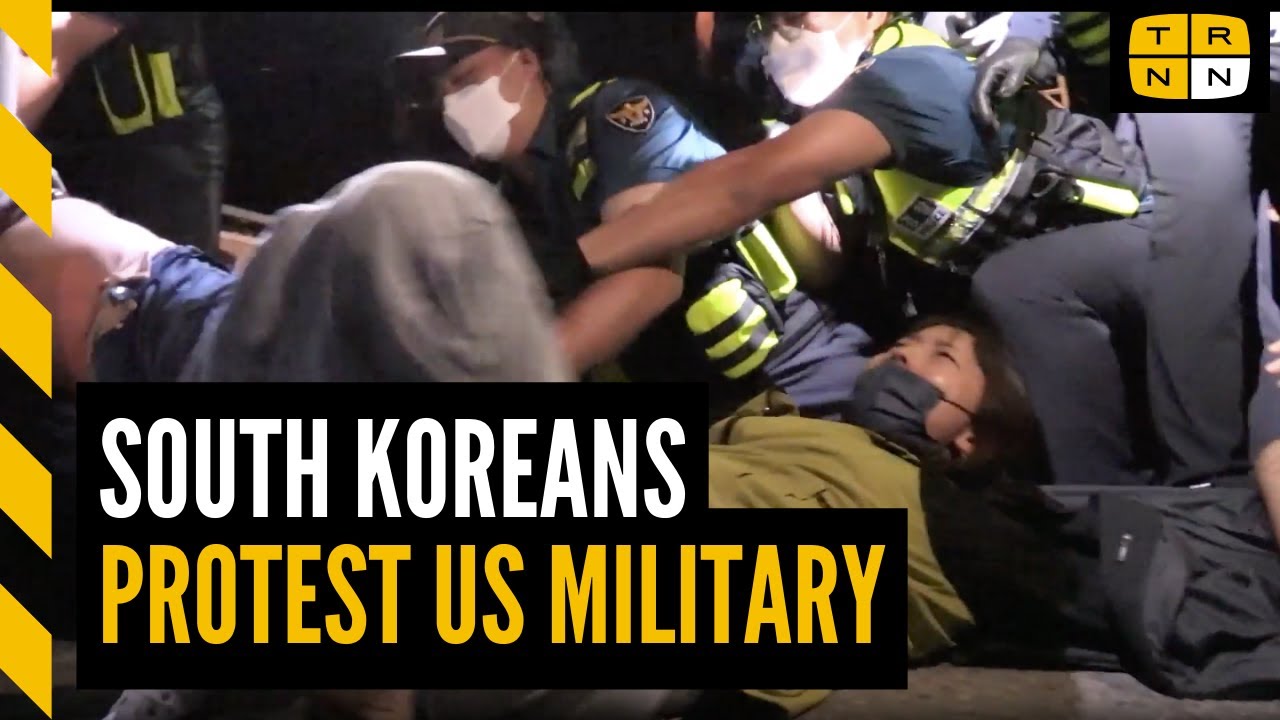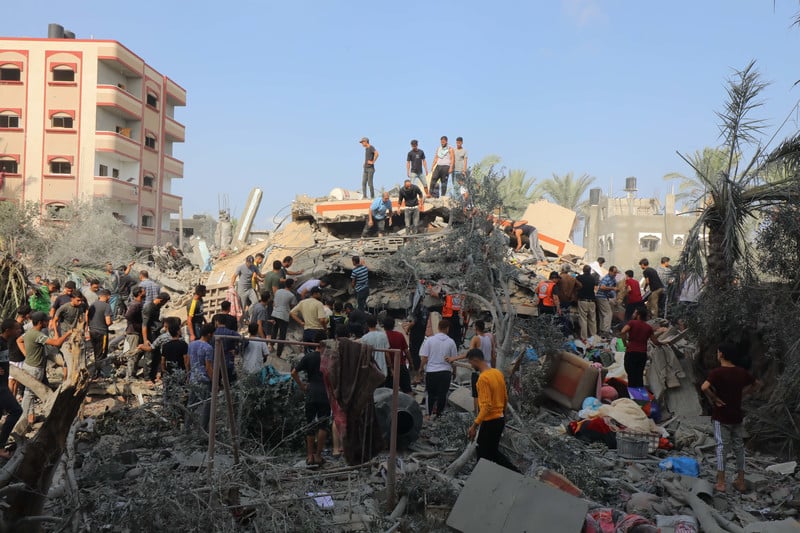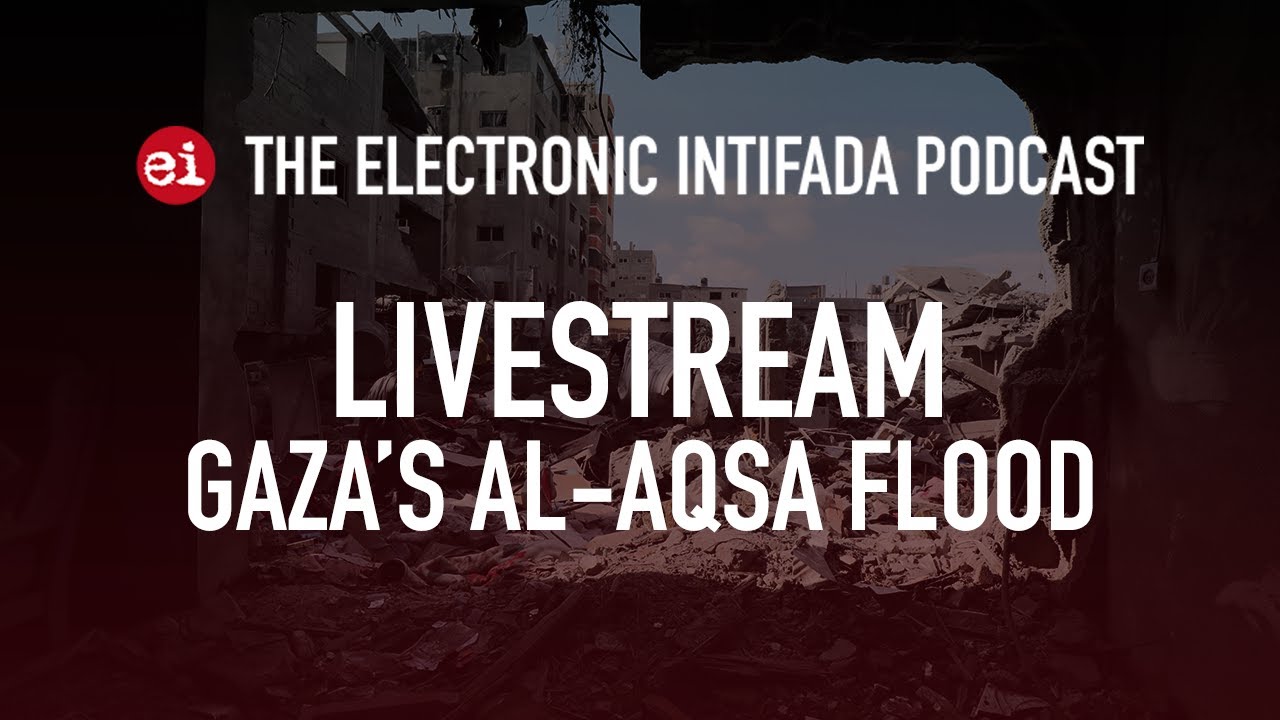 afellowkid
6mo ago
•
100%
afellowkid
6mo ago
•
100%
Remember there is c/documentaries! You might find something good there too.
Taken for a Ride - The U.S. History of the Assault on Public Transport in the Last Century - This documentary takes a look at the old public transport system of Los Angeles and follows the step-by-step process by which it was dismantled by General Motors. IMO it's a good one for seeing a concrete example of the actual steps that privatization can take -- GM bought the streetcars after a campaign calling them inefficient/run down etc., then after buying them, let them degrade in quality and service, then replaced them with a supposedly superior bus system. Then they allowed the buses to give poor service, ultimately promoting individual cars over buses and highway expansions as the solution to traffic congestion.
Former CIA Agent John Stockwell Talks about How the CIA Worked in Vietnam and Elsewhere - This interview clip is only 15 minutes long but gives a very concise and specific example of how the CIA manipulates the media by having contacts with reporters and passing them a mixture of true and false stories, basically coming up with bullshit and fake photos that will go viral and spread CIA talking points while the "source" of the information becomes more and more obscured as the story is passed around different news agencies, as well as how the CIA have funded the production of countless books, whose authors were allowed to write whatever they wished as long as they included this or that specific point, and that these authors have gone on to have solid and respected careers in academia.
Cybersocialism: Project Cybersyn & The CIA Coup in Chile - From what I recall it gives a good overview of what happened in Chile. In my opinion, due to Chile's case being so well-documented, it's a case which people without a lot of background knowledge can start to learn about the process of CIA coups from and how it relates to protecting the interests of the bourgeoisie. A viewer of this documentary can then start applying that knowledge to many other cases where a similar pattern comes up (country tries to nationalize industries/resources which are in foreign imperialist hands => economic loan denial/asset freezes/sanctions are implemented by the imperialists & opposition groups and terrorists in the country are funded & coups are orchestrated by the imperialist power.)
The Human Face of Russia - Simply, lots of footage of everyday life in 1980s USSR. As I recall, it was a foreign group going there to film and fact-check about the living standards and learn about various political and social activities of the people. IIRC it was a pretty calm and positive documentary, a good one if you need some time away from more heavy and upsetting topics.
The Weight of Chains - About the breakup of Yugoslavia.
The U.S. School That Trains Dictators & Death Squads - About the School of the Americas.
Gaza Fights For Freedom - About the Great March of Return.
The Lobby - Four-part undercover investigation into Israel's covert influence campaign in the United States.
 afellowkid
6mo ago
•
100%
afellowkid
6mo ago
•
100%
Man I hate this dude
The history of the Middle East since 1948 shows Israel constantly striving for peace, only to be rebuffed time and again by the Arabs.
-- Antony J. Blinken, "Lebanon and the Facts", 1982
Israel is not, has never been, nor will ever be the irreproachable, perfectly moral state some of its supporters would like to see. Israelis are, after all, only human. Still, one pedestal the Jewish state can stand on--and stand on alone in the Middle East--is that of a democracy. Yes, there are tragic excesses in the occupied territories. True, the invasion of Lebanon claimed many innocent lives. The fact remains, though, that Israelis question themselves and their government openly and honestly. Eventually, as in other democracies, those responsible for wrongdoing are held accountable.
-- Antony J. Blinken, "Israel's Saving Grace", 1982
The summer of 1982 may be remembered in history as the time Israel passed from adolescence to adulthood. The illusions of a child are left behind. But the Jewish state remains special, an oasis in a desert. Its citizens have built a working democracy from scratch in a region that has no others. Israelis must treasure that democracy, protect it with all their will. For if they don't, the growing pains that are Lebanon, Shatila and Sabra, the repression of Arabs and the feud between Ashkenazim and Sephardim could turn into a plague.
-- Antony J. Blinken, "The Danger Within", 1983
 afellowkid
6mo ago
•
100%
afellowkid
6mo ago
•
100%
 afellowkid
6mo ago
•
100%
afellowkid
6mo ago
•
100%
 afellowkid
6mo ago
•
100%
afellowkid
6mo ago
•
100%
 afellowkid
7mo ago
•
100%
afellowkid
7mo ago
•
100%
 afellowkid
7mo ago
•
100%
afellowkid
7mo ago
•
100%
Ultimately it means meet/talk with other people and engage in planning and work to accomplish something together, whether that thing is big or small.
Easiest thing to do is look around for people who are already organized, e.g., a party or other org focused on a particular issue. IMO if someone has no experience with organizing whatsoever, then they can benefit from joining almost anything, even something run by liberals, anarchists, etc., just simply to see what kind of dynamics are at play when people are trying to work together to accomplish something. A lot of orgs and such are not easy to find online. It's better to just go to protests and demonstrations or to community projects and start meeting people and learning about what they are doing by word of mouth. People who are involved in organizing are typically going to be open to teaching/involving new people. A demonstration is the kind of place where people are purposely trying to educate and involve the public. Just don't come across as a cop and be wary that some people trying to involve you in things might be cops themselves lol. Approach groups with a critical eye, join a small-scale/low-risk org whose goals you support to learn about the practical dynamics of how organizing works and to build up a network of acquaintances and friends, and keep learning from there. Trying to organize something from scratch with no experience is possible but if you don't have a clear idea of what you're doing nor have a group of other people who are keen and intrinsically motivated to work on the goal, it's going to be pretty difficult.
 theoregongroup.substack.com
theoregongroup.substack.com
I found this article to be interesting as it talks a bit about methods of mining uranium, as well as talks about a current issue regarding a shortage of a necessary ingredient of that process (sulfuric acid), while also going over issues in how to transport uranium supply to the West in light of sanctions on transport routes through Russia and recent deals with China. In general the article is just stressing how precarious the West's supply of uranium from Central Asia may be, and highlighting that China and Russia are much better positioned to trade with that region. Also a mention of how France has been prompted to rely more on Central Asia for uranium in light of the instability of sourcing uranium from Niger. > * Kazatomprom, world's largest uranium producer, warns of production shortfall >* logistical issues, eg transport and shortages in sulfuric acid could take years to fix > * concerns long-term supply contracts prioritize Russia and China over the West > **Kazatomprom is the world's largest and, arguably, most important uranium producer, accounting for 23% of global supply in 2022.** To put in context, that's double the next largest producer, Cameco in Canada. > > **The company has now warned production will be 20% below levels allowed by permits in 2024, with production impacted possibly into 2025.** The warning comes just as uranium prices are approaching historic highs with significant fallout across the global energy and nuclear sector. > Critically, as we'll get to shortly, Kazatomprom mines exclusively with in-situ leach (ISL) methods (or, in-situ recovery (ISR)), which involves dissolving the ore while it's still in the ground with acid and soda, and then pumping the solution to the ground where it can be recovered with no tailings, waste or disturbance on the surface. [...] **The main problem, ostensibly, is that they don't have enough sulfuric acid, essential for in-situ leaching, to raise output levels.** [...] The problem is so acute that Kazatomprom plans to construct a new sulfuric acid plant in the Turkestan region to produce 800,000 tonnes of sulfuric acid per year. However, it's only expected to be ready in 2026. > **The deals between Kazatomprom and both Russia and China threaten to squeeze out Western access.** [...] China has just signed a long-term contract to procure a significant amount of uranium — for domestic consumption, not for export. The West, we suspect, would also be reluctant to trade vulnerable supply chains through Russia for supply chains through China. [...] In the high-stakes Great Game of resource control in Central Asia, any sudden and severe tightening of global uranium supply threatens to expose the West's precarious position compared to its competitors.
 afellowkid
10mo ago
•
100%
afellowkid
10mo ago
•
100%
I'd be really interested in reading that
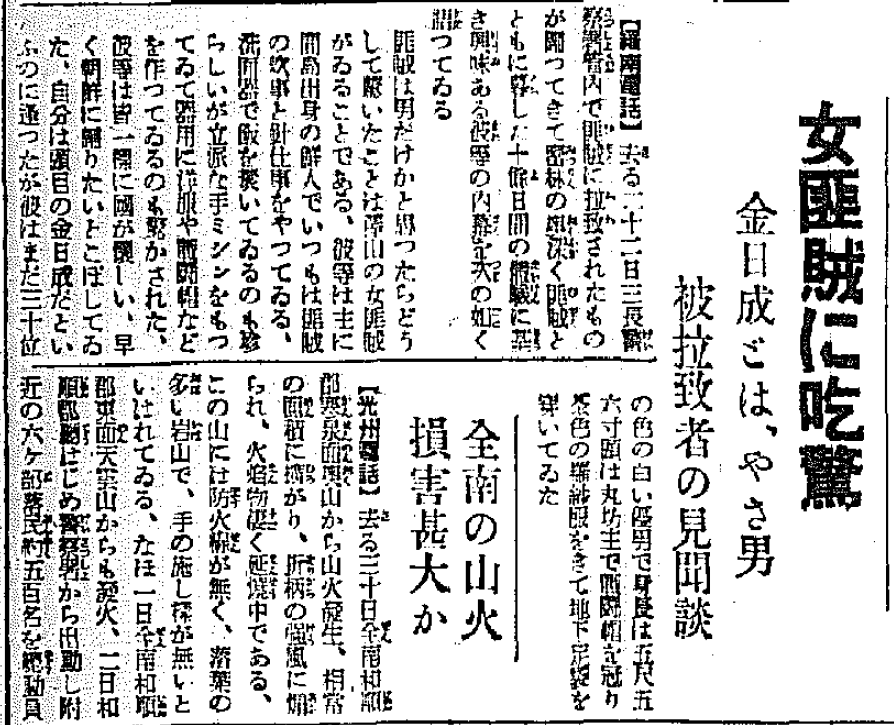 exposingimperialjapan.com
exposingimperialjapan.com
Link includes Japanese original text and photograph of the article. English version: This is a short article from 1939 where a Japanese abductee escaped captivity from Korean Communist Guerrillas to tell the Japanese police in Ranam, Korea about meeting Kim Il-sung and his comrades, many of whom were women. [Translation] Gyeongseong Ilbo June 3, 1939 Astonished by Female Bandits Kim Il-sung was a Gentleman A Kidnap Victim Shares His Experience [Telephone Report from Ranam] On the 22nd of last month, a person who had been kidnapped by bandits in the jurisdiction of the Samjang Police Station returned and spoke about the interesting inner workings of the bandits, based on his experiences of living with them deep in the mountains for over ten days. One surprising thing was the presence of many female bandits among them, not just men as he had initially thought. These people are primarily ethnic Koreans from the Gando region and usually handle cooking and sewing for the bandits. It was unique that they cook rice in a washbasin, but it was also surprising that they skillfully made Western clothes and combat hats using a proper hand-operated sewing machine. All of them uniformly expressed nostalgia for their homeland and said they wanted to return to Korea as soon as possible. He met the leader who introduced himself as Kim Il-sung. Kim was a fair-skinned, good-looking man in his thirties, about 5 shaku and 5 or 6 sun tall (167 to 170 cm tall). He was bald, wore a combat hat, dressed in brown woolen clothes, and wore jika-tabi footwear.
 afellowkid
12mo ago
•
100%
afellowkid
12mo ago
•
100%
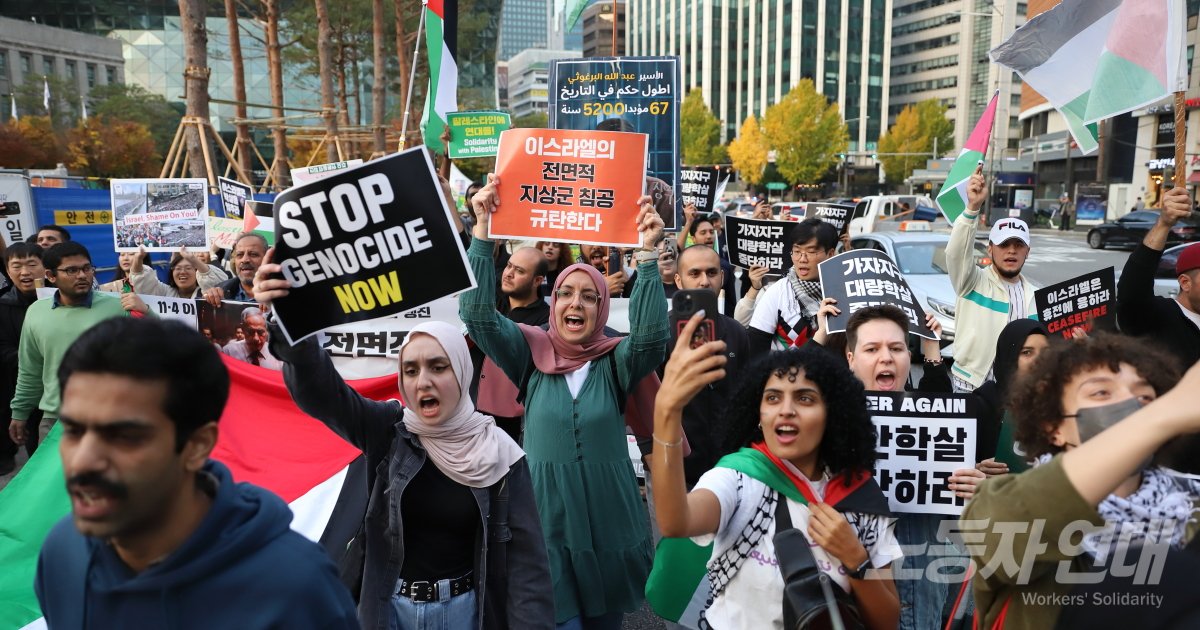 wspaper.org
wspaper.org
Note: This is machine translation of selected quotes from the articles. Additionally, several photos of the events are available in the linked articles. [November 4th Palestinian solidarity rally and march condemning Israel: Participants of various nationalities come together](https://wspaper.org/article/30223) 2023-11-04 >On November 4, a rally and march condemning Israel and solidarity with Palestine were held near the Israeli Embassy in Korea. This was the 6th rally. > >There was great anger because the rally was held immediately after Israel bombed the Jabilia refugee camp in the Gaza Strip, Palestine for three days. > >Today's rally was notable for the diversity of race and nationality of the participants. People of various races and nationalities marched through downtown Seoul, listening to remarks and shouting slogans in unison despite their different religious and political backgrounds. > >“We're all Palestinians!” > >At this rally, 37 organizations in Korea expressed support and solidarity. There were 9 more places than the rally a week ago. [...] >At the end of the rally, various participants, including workers, college students, and doctors, representing the solidarity groups that prepared for today's rally, read a resolution pledging to further foster and continue solidarity. > >“The resistance of Palestinians who have fought to protect their lives, their homes, and their right to live like human beings is completely justified. … Palestinian resistance is not isolated. Israel is already facing resistance, and will face more resistance in the future. > >“Although the Israeli government, which is afraid of the truth, mobilized fake news and various Western governments that support Israel have tried to interfere, righteous movements in solidarity with the Palestinian people’s resistance have continued all over the world. > >“Israel, stop the massacre right now! Israel's unjust force will never be able to bring down the legitimate resistance of the Palestinian people. Solidarity with Palestine!” --- [Palestine Solidarity Campaign Takes First Step in Busan](https://wspaper.org/article/30219) 2023-11-02 > On November 1, a campaign was held in Seomyeon, Busan, to condemn Israel and show solidarity with Palestine. > Even though the campaign plan was announced on social media only a day or two in advance, many people gathered. In addition to Koreans, people from various countries including Palestine, Egypt, Indonesia, Malaysia, and the United States participated. These were people who could no longer tolerate Israel's atrocities. Everyone welcomed this campaign and thanked each other for taking action in solidarity with Palestine. > Palestinian international students also participated in the campaign that day. He is said to have lost contact with his family in Gaza. He complained that it was difficult to bear because his heart was always sore. He expressed gratitude to those who participated in the Palestine Solidarity Campaign. > The campaign attracted the attention of downtown Busan citizens. There were many people who looked closely at the photos and cartoons that conveyed the reality of Palestine. > Several workers from the Korean Confederation of Trade Unions who were holding other rallies and marching nearby also expressed solidarity by raising their fists toward the Palestine solidarity campaign. > The voice of Palestinian solidarity must and can become louder.
 afellowkid
12mo ago
•
100%
afellowkid
12mo ago
•
100%
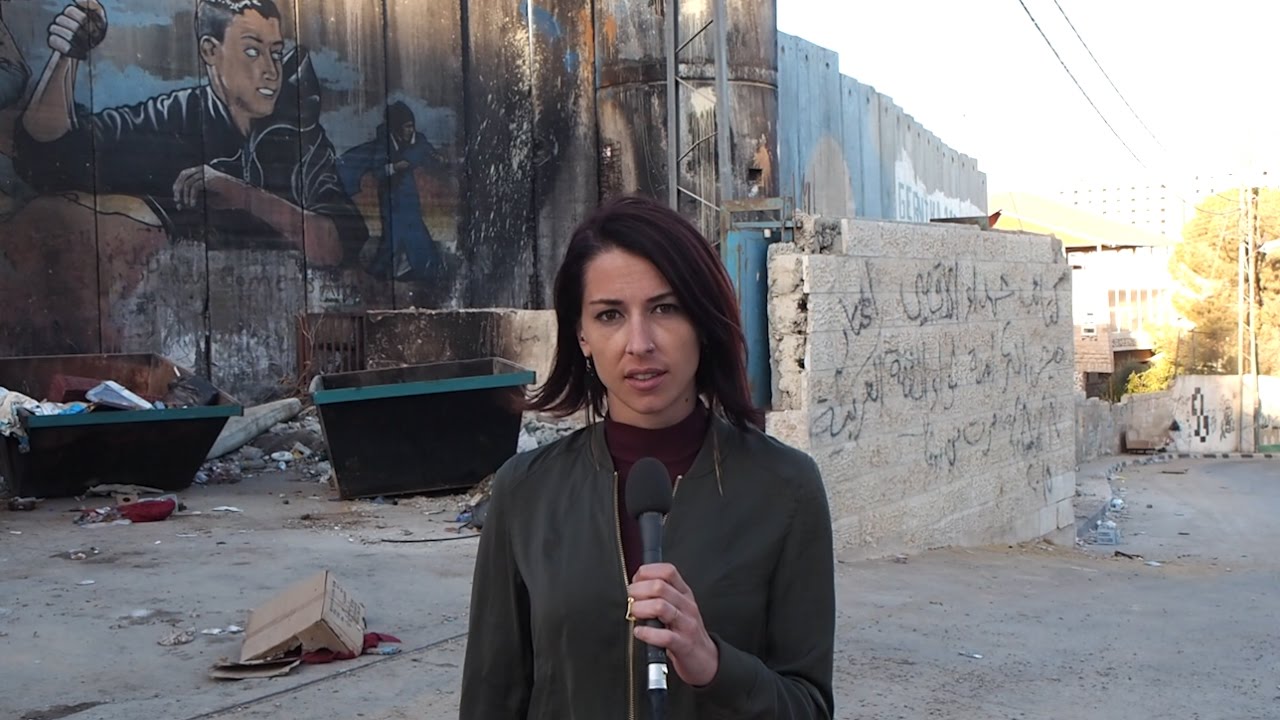 www.youtube.com
www.youtube.com
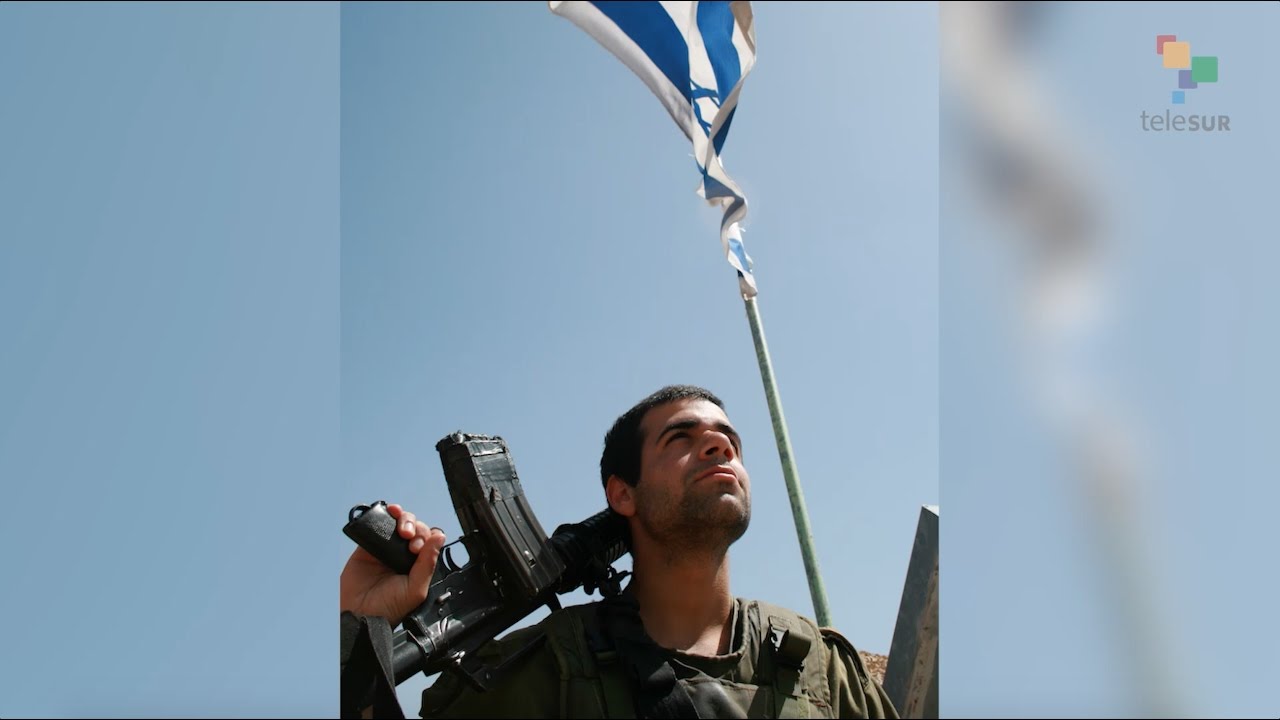 www.youtube.com
www.youtube.com
Some quotes from the video: > The official orders, to anyone who breaks curfew, is shoot to kill. > I wasn't sure if I was enjoying the power of controlling all of these people, or if I don't understand why kids look at me frightened, why are they running away when I walk into the street? Before my service, I worked as an educator, I love kids, so I think I was very confused on why a kid would find me scary. > I realized that my job is actually to maintain an apartheid system. Very early on I understood that the rights that the Jewish settlers have are not the rights that the Palestinians have. I understood that I cannot touch a Jewish settler if he is attacking a Palestinian; the best I can do is call a local police department to come handle it, like I would do at home in Jerusalem. So these Jewish settlers are living under the same rights that I live in Jerusalem but the Palestinian next to them next house over next building over sometimes next apartment over lives under my rule, my military rule, and I can do whatever I want with him. > > I can take his home as a temporary base for a few hours to a few days to a few weeks, I can decide that I'm arresting the people of the house and tying him up to the fence of my base. If we will get an order to demolish their home or just lock their front door and don't let them out into the street, their house is on a street that only Jewish settlers can walk on, and Palestinians cannot > I felt like I am the terrorist and my job was literally to scare people so they cannot think about acting against the Israeli settlers or the Israeli military, that was actually our defined mission: to make sure that to instill fear in the hearts of Palestinians in Hebron, and that's exactly what we did > Growing up in Israel like I said I believe that I was the good guy, I mean the story that all of us are being told all around the world is that the the very clear difference between good and bad people. You learn about the Holocaust growing up. I saw my grandma screaming in the middle of the nights, memories from Auschwitz in her mind, memories of our family, I knew that I am going to be a good human being, you know. In the age of 15, 16, I began being almost obsessed with trying to understand the Nazi side in the Holocaust, not only to hear the stories of the victims of the Jewish victims and any other victims from the Holocaust, but to try to understand how can a Nazi soldiers get up in the morning, give his kids a kiss his wife a hug and go out to the camps and do his job? > > I just couldn't understand that. And when I got into the occupied territories for the first time I understood how can there be a contradicting inside yourself, as a human being you could do your job and be a one person at home, be a loving caring, you know, boyfriend or a son or brother, and in the same time, hold people under a regime so oppressed that people are dying not from only your bullets, but the amount of calories being entered into their territory, like in Gaza, from depression or sickness > Leaving the military and start interviewing soldiers, really, I think, made me understand that there's a systematic oppression that is taking place in the occupied territories > Actually what being an Israeli means, being an Israeli, growing up in the Israeli educational departments, you understand that all the Arabs hates you [...] Going into the military you're already going so full of hate and fear at the same time that you don't need much to be very aggressive, violent, and racist toward Palestinians, they see the Palestinian women and the Palestinian men as subhuman
 afellowkid
12mo ago
•
100%
afellowkid
12mo ago
•
100%
When reading books written in the imperial core, about the enemies/targets of imperialist nations, I would keep this in mind:
Former CIA case officer John Stockwell: Well for example, in my war, the Angola war, that I helped to manage, one third of my staff was propaganda. [...] We would take stories which we would write and put them in the Zambia Times, and then pulled them out and sent them to a journalist on our payroll in Europe. But his cover story, you see, would be what he had gotten from his stringer in Lusaka, who had gotten them from the Zambia Times. We had the complicity of the government of Zambia, Kenneth Kaunda if you will, to put these false stories into his newspapers. But after that point, the journalists, Reuters and AFP, the management was not witting of it. Now, our contact man in Europe was. And we pumped just dozens of stories about Cuban atrocities, Cuban rapists--in one case we had the Cuban rapists caught and tried by the Ovimbundu maidens who had been their victims, and then we ran photographs that made almost every newspaper in the country of the Cubans being executed by the Ovimbundu women who supposedly had been their victims.
Interviewer: These were fake photos?
Stockwell: Oh, absolutely. We didn't know of one single atrocity committed by the Cubans. It was pure, raw, false propaganda to create an illusion of communists, you know eating babies for breakfast and the sort. Totally false propaganda.
Interviewer: John, was this sort of thing practiced in Vietnam?
Stockwell: Oh, endlessly. A massive propaganda effort in Vietnam in the '50s and in the '60s, including the thousand books that were published--several hundred in English--that were also propaganda books sponsored by the CIA. Give some money to a writer, "Write this book for us, write anything you want, but on these matters, make sure, you know, you have this line."
Interviewer: Writers in this country? Books sold and distributed in this culture?
Stockwell: Sure. Yeah. English language books, meaning an American audience as a target, on the subject of Vietnam and the history of Vietnam, and the history of Marxism, and supporting the domino theory, et cetera.
Interviewer: Without opening us up to a lawsuit, could you name one of them?
Stockwell: No, I could not. The Church Committee, when they found this out, demanded that they be given the titles so that the university libraries could at least go and stamp inside "Central Intelligence Agency's version of history," and the CIA refused because it's been commissioned to protect its sources and methods, and the sources would be the authors who wrote these false propaganda books, some of whom are now distinguished scholars and journalists.
Also note:
-
It's a recognized problem in south Korea that "time and time again, conservative outlets and foreign media circulate and reproduce rumors [about DPRK] based on questionable sources ... retractions and apologies are rarely ever provided when the reports are shown to be false" and "Sometimes, the South Korean government itself has been the epicenter of false reports ... The situation has been made worse by defector groups aggressively proliferating claims from unverified 'North Korean sources,' as if attempting to draw attention to themselves."
-
South Korea's national intelligence service (NIS) forges documents to frame people and tortures them into false confessions as well as pays defectors for sensational stories and harasses and silences people who say positive things about DPRK (and takes away their passports so they can't go back, even when they came to south Korea against their will)
-
UN human rights researchers who have worked directly with defectors from DPRK have written about how testimonies are made unreliable by cash incentives paid by the NIS and other organizations: "North Korean refugees are well aware of what the interviewer wants to hear. ... The more terrible their stories are, the more attention they receive. The more international invitations they receive, the more cash comes in. It is how the capitalist system works: competition for more tragic and shocking stories. ... In my 16 years of studying North Korean refugees, I have experienced numerous inconsistent stories, intentional omission and lies. I have also witnessed some involved in fraud and other illicit activities. In one case the breach of trust was so significant that I could not continue research."
Edit: So, to summarize -- Former CIA case officers have discussed how they pay academics and journalists to write thousands of books about foreign communist enemies that contain whatever content the author wants as long as it pushes certain specific lines; the CIA regularly plants false stories into foreign newspapers and gets them circulated around; the NIS (formerly the "KCIA", formed on the US-backed side during the Korean War to combat communists) is known to forge documents, extract false confessions, pay people to lie or embellish to the point that mainstream south Korean liberal media and UN researchers say it's making it too hard to tell what's true; defectors with sensational stories receive payments and get book deals and international speaking tours while people with positive things to say get arrested and surveilled by intelligence agencies...So, keep that info in mind as you consider what's going on with these books.
 afellowkid
12mo ago
•
100%
afellowkid
12mo ago
•
100%
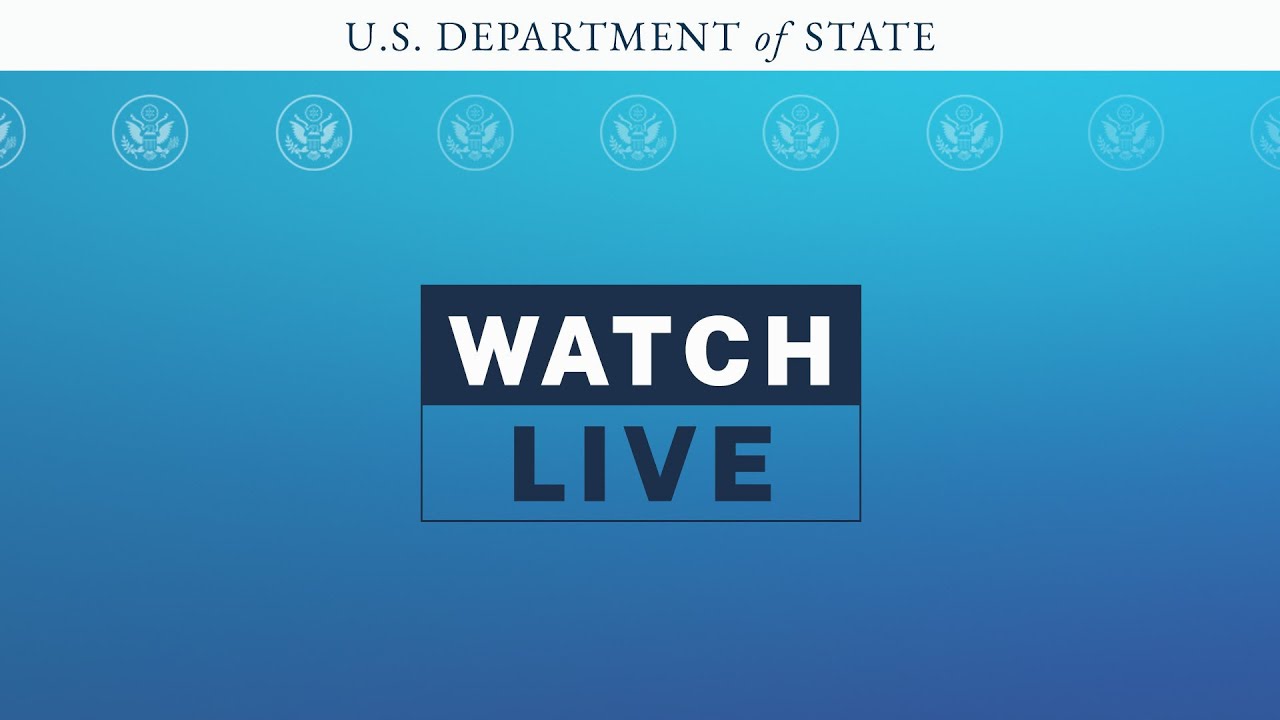 www.youtube.com
www.youtube.com
Video's content begins @56:44 For a quick look of the general vibe see @1:04:32 "We now stand at a moment where many are again making the bet that we’re too divided, we’re too distracted at home to stay the course..." says Blinken in his speech about supporting Israel and Ukraine, as he is repeatedly disrupted by activists demanding a ceasefire in Gaza and an end to funding genocide and are gradually pulled out of the room one-by-one by the Capitol Police. Remarks on the State Department website: https://www.state.gov/opening-remarks-by-secretary-antony-j-blinken-before-the-senate-appropriations-committee-on-a-review-of-the-national-security-supplemental-request/ The several statements and chants by activists demanding an end to the bombing of Gaza and genocide of Palestinians are listed only as "(Interruption.)" in the transcript. I just happened to be reading that transcript and was curious what the repeated "interruptions" were, assuming it would be something like this, so I checked the video out. In the vid you can see the tense atmosphere as Blinken attempts to deliver his soulless advertisement-like speech in a firm optimistic or "inspiring" tone, making statements about how the US's adversaries have assessed the US is internally divided but the US is actually a resilient and strong leader, while the chairwoman has to keep hitting the gavel and pausing the hearing as activists shouting "genocide" at Blinken are dragged out one by one by the cops, while Blinken sits in a tense, irritated, and pathetic posture and then keeps trying to continue with his sales pitch tone between interruptions and being called a genocide supporter, with others sitting in the hearing behind him looking variously annoyed, drained, and bleak
 afellowkid
12mo ago
•
100%
afellowkid
12mo ago
•
100%
 afellowkid
12mo ago
•
100%
afellowkid
12mo ago
•
100%
 afellowkid
12mo ago
•
100%
afellowkid
12mo ago
•
100%
More context here: https://electronicintifada.net/content/watch-film-israel-lobby-didnt-want-you-see/25876 > The Electronic Intifada has obtained a complete copy of The Lobby – USA, a four-part undercover investigation by Al Jazeera into Israel’s covert influence campaign in the United States. > We are releasing the leaked film simultaneously with France’s Orient XXI and Lebanon’s Al-Akhbar, which have respectively subtitled the episodes in French and Arabic. > The film was made by Al Jazeera during 2016 and was completed in October 2017. > But it was censored after Qatar, the gas-rich Gulf emirate that funds Al Jazeera, came under intense Israel lobby pressure not to air the film. > Now The Electronic Intifada can reveal for the first time that it has obtained all four parts of the film. > To get unprecedented access to the Israel lobby’s inner workings, undercover reporter “Tony” posed as a pro-Israel volunteer in Washington. > The resulting film exposes the efforts of Israel and its lobbyists to spy on, smear and intimidate US citizens who support Palestinian human rights, especially BDS – the boycott, divestment and sanctions movement.
> On episode 63, we speak to Refaat Alareer, a professor, writer and father in Gaza, about the latest Israeli military assault on Gaza that killed nearly 50 Palestinians, including 17 children, in early August [2022]. "But for Palestinians who’ve been suffering for decades under this military, brutal military regime, military rule, whether there are elections or not, we’re exposed to Israeli killing machines, we’re killed day and night, we’re being suffocated. Even if Israel is not killing us, shedding our blood or being suffocated. When you can’t travel, when somebody – I know people in Gaza who, people who died because they can’t go to the West Bank or to Jerusalem because they will get arrested at Erez because 30 years ago, they threw stones at Israeli military jeeps, or because a family member was a freedom fighter. So the reality on the ground that sadly not many people see is that the 24/7 Israelis are killing us, suffocating us, shedding our blood. And for many people, this slow death that happens is even worse in so many ways. At least, when Israel starts a war, many people start paying attention. And even when we talk about truce, or a lull or a ceasefire, it never stops" Video, audio, and transcript available on the linked page.
> On episode 68, we speak with activist and blogger Tony Greenstein, a veteran of the Palestine solidarity movement in the UK, about his new book Zionism During the Holocaust: The Weaponization of Memory in the Service of State and Nation. Video, audio, and transcript available on the linked page.
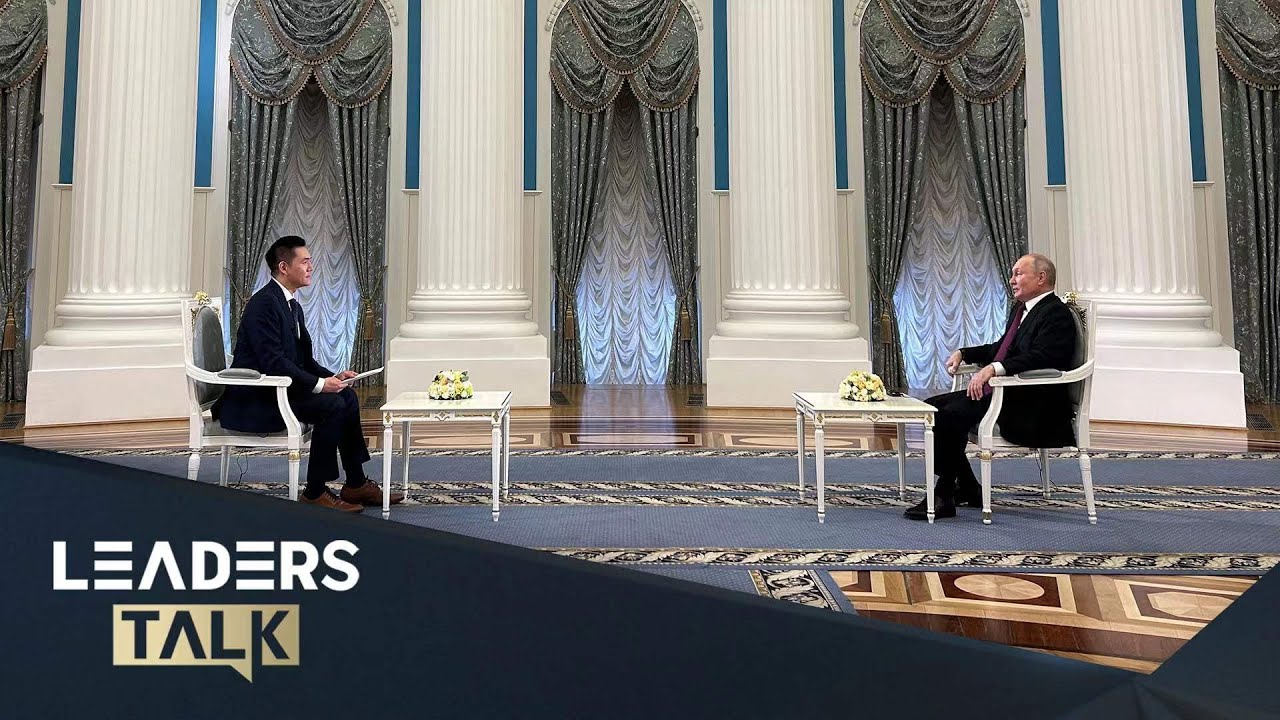 www.youtube.com
www.youtube.com
> The Ukraine crisis has laid bare the deep divisions between great powers and cast doubt on the "rule-based order" built by the West. What should a multipolar world look like? What can be done to make sure that the world is not divided between "first-class" and "second-class" countries and peoples? > > For this edition of Leaders Talk, CMG's Wang Guan traveled to Moscow and sat down with Russian President Vladimir Putin ahead of his visit to China to attend the 3rd Belt and Road Forum for International Cooperation. President Putin spoke about Russia-China relations and how they have nurtured and developed in the last two decades, not only on the energy front but also in other areas of mutual interest. He told Wang how the Russian vision of an Eurasian Economic Union aligns with China's Belt and Road Initiative and why President Xi's concept of "building a global community of shared future" is realistic and coherent. President Putin also expressed at length his position on the conflict in Ukraine and drew another parallel with Iran, saying that "the West keeps adding fuel to the fire."
 www.youtube.com
www.youtube.com
Note: This video is from January (uploaded 01/13/23). > BT’s Rania Khalek sat down with Sheikh Naim Qassem, deputy secretary-general of Hezbollah, in Beirut, Lebanon. Hezbollah began as a resistance movement against Israeli occupation of southern Lebanon and has since grown to become a regional player across the Middle East. > > They discussed Hezbollah’s role in Lebanon and the region as well as the group’s view on global developments. This is Qassem’s first interview with an English-language outlet based in the West since the BBC sat down with him in 2019.
DPRK, along with Iraq and Iran, was declared part of the "Axis of Evil" in 2002 by the US's George W. Bush administration. This 2008 book recounts and analyzes the "war on terror" and the U.S. bid for unipolar hegemony up to the time of its writing. It provides details about that time period, as well as other historical background information, delivered with DPRK's anti-imperialist perspective. Overall, I think it's an interesting and relatively quick read (81 pages) covering mainly the 1990s-mid 2000s and tracing the emergence of multipolarity and the US's attempt to stop that emergence around the world, with attention given specifically to its attempts to gain control over countries in which oil and natural gas pipelines run through in order to circumvent Russia and "seize the lifeline of the European economy." Beginning with the fall of the Soviet Union and thus the ending of NATO's reason for existence, it follows the US's unpopular attempts during the 1990's to manufacture a new world enemy, until the 9/11 attack created its perfect excuse to permanently wage war on any region unfavorable to US interests, with the main conclusion of the book being that although this project by the US is intended to drag on indefinitely, it will eventually end in failure due to its unilateralism and infringement upon sovereignty of nation-states, "illogicality combined with a childish attempt at division of the international political forces, and anachronism." Below I will share some excerpts from the book. ::: spoiler several excerpts > [With the collapse of the Soviet Union] NATO forfeited its raison d’etre, and the United States was deprived of any justification for its pursuit of world supremacy. The stick which the US had been wielding on the excuse of “protecting the free world” from the “threat” of the Soviet Union and communism, lost its authority, and the focal point that had supported the pyramid of the US-led alliance diminished considerably. The Iron Curtain was lifted, widely opening the sphere of influence under the former Soviet Union, a much coveted region. The United States, however, lacked a specific justification to fill the “power vacuum” until September 11, 2001. > In order to reverse the world trend towards multipolarization and allay the spiraling anti-Americanism across the world, the United States needed an event by which it could mislead opinion at home and abroad as in the days of the Cold War and bring about a radical change in the world political sphere. > The objective of the war [in Afghanistan] was not the capture of bin Laden or retaliation for terrorist attacks, but to exert a long-term influence on Afghanistan to secure a foothold in Central Asia, a region with abundant strategic resources: First, to secure a strategic foothold for containing Russia and China and encircling Iran; second, to secure military means for winning firm control over the two major oil regions in the world-the Caspian Sea area and the Middle East; and third, to secure a centre of operations and advanced base needed for expanding and prolonging the “war against terrorism.” > The ulterior motives [of the Iraq war] were, first, to overthrow the Saddam regime, which had openly held up the anti-US banner in the Arab world for over ten years, thus realigning the political force in the Middle East in its favour, second, to win exclusive control over the strategic region with energy resources and the world oil market, and third, to create an environment favourable for Bush’s second term of office and the Republicans’ prolonged stay in power. > Military blockades, a link in the whole chain of the “war against terrorism,” are effected through the Proliferation Security Initiative, which Bush proposed in Krakow, Poland, in late May 2003 and explained in detail at the G-8 summit held in Evian-les-Baines, France. It aims at enforcing economic blockades on the countries that possess, develop and export weapons of mass destruction and searches of their vessels at sea, and further building an international cooperation system for preemptive strike. The targets are Korea and Iran, two of the three countries Bush claimed to be constituting an “Axis of Evil.” > The countries and regions where the flames of the “war against terrorism” are raging are, without exception, those that have oil resources or where oil pipelines pass through. The Afghan war was directly related to oil and its transport in the Caspian, the third-biggest oil region in the world. Samuel R. Berger, national security adviser to former President Bill Clinton, confessed that America’s vital interests in Central Asia, including Afghanistan, are to safely transport oil and natural gas at any cost. > The existing pipelines in Central Asia, from which the United States imports oil, pass through Russia. So the United States had to find another transport channel for Caspian oil to avoid Russia’s monopoly of the pipelines. The southward channel passing through Iran was ideal, but America’s relations with the country were a stumbling block. > Iraq has oil deposits of 112 billion barrels, the next-biggest oilfield after that of Saudi Arabia, and the cost of drilling one barrel was 50 cents before the war, the cheapest in the world. If the United States brought this oil country under its control, it would prove favourable for it to relieve its burden of oil imports, which was estimated to spiral 90 percent till 2020. Moreover, this would deal a telling blow to OPEC, restrict the influence of Russia and other oil suppliers, and seize the lifeline of the European economy. > Entering 2002, the United States took the lead in inducing early membership for Romania and Bulgaria, countries that have ports on the Black Sea, of NATO, and intensified its military advance into Georgia and other Transcaucasian countries. These actions promoted a plan for laying an oil pipeline from the Caspian Sea through Turkey, by-passing Russia. > Availing themselves of the “war against terrorism,” the US military-industry complexes, which had been eclipsed after the Gulf War, bounced back. US munitions enterprises, including the four major corporations-Lockheed Martin, Boeing, Raytheon and TRW-are enjoying a wartime boom. > After 9/11 the United States did its best to involve as many countries as possible in its own “war against terrorism.” [...] On September 18, 2001, Secretary of Commerce Don Evans warned that such sanctions as blocking access to the American market and reconsidering food assistance would be imposed against those countries that were unwilling to cooperate with the United States in the campaign. This led many countries to donate troops and help with logistics in the “war against terrorism,” and to allow US-led forces to pass over their territorial airspace or use bases in their territories during the wars in Afghanistan and Iraq, or promise cooperation or express understanding-overt or covert cooperation with the United States. > Bush divided the world into those on the US side and those on the “terrorist” side, through childish logic. Labelling the countries that pursue anti-US independence, that are not obedient to it and that are situated in regions of strategic importance as siding with the “enemy,” he resorted to unprecedented pressure and military blackmail. If the United States could find a “reasonable excuse,” it immediately and unhesitatingly committed military aggression. > The Taliban regime in Afghanistan and the Saddam Hussein government of Iraq became miserable victims of the “war against terrorism.” The next targets of the “war,” which is continuing in line with Bush’s “ripples” strategy, are the DPRK, Iran and Cuba. These countries, though small, stick to the principle of independence, and reject the American view on values. [...] The US attempt to crush the DPRK and realize domination over the whole Korean peninsula constitutes the core of its policy towards the DPRK and the key to its building of a foundation on which to achieve world hegemony. > The Songun politics the DPRK now pursues acts as a deterrent to the “war against terrorism” and safeguards peace in Northeast Asia as well as on the Korean peninsula. > To cope with a possible military strike by the United States, Cuba put all its people under arms and fortified the whole country. In December 2004, four million civilians joined the soldiers and reserve forces in the last stage of Bastion 2004, a military exercise aimed at perfecting the principles of “all-people war” against possible US aggression. Cuba’s firm anti-US stand and strong countermeasures will inevitably foil any US attempt to stifle it. > If the United States continues the “war against terrorism” with the logic that any country that is not on its side is on the enemy’s side, it will inevitably meet self-destruction. > Bush submitted the Nuclear Posture Review to Congress in January 2002. Outlining the orientation of the nuclear policy the United States should pursue in the forthcoming five to ten years in the report. Bush insisted on changing the strategy of nuclear deterrence. In the part not made public, the report pinpointed the DPRK, along with China, Russia, Iraq, Iran, Libya and Syria, as targets of nuclear attack, and further expanded the scope and methods of the use of nuclear weapons. [...] The document also advocated nuclear preemptive strike against nonnuclear states by defining five nonnuclear states as targets of nuclear attack. > In the United States some advocate a theory of “cultural conflict,” which alleges that Islamic culture is fundamentally contradictory to Christian culture. Neocons view that 9/11 proved this conflict and the only way to eliminate it is to reform the entire Islamic world and lead it to Western-style democracy. > Since 9/11 the United States has claimed that, as the “failed states,” serving as a source of or shelter for terrorism, pose a great threat to global security, the countries that sponsor international terrorism or allow the free activities of terrorists in their territories should also be viewed as “failed states.” Alleging that these countries are deprived of their raison d’etre, it insists that the international community, or some countries, or one country, has a right to take action with regard to such countries, and further to change their regimes to root out terrorism, which threatens the international community. The concept of “bankrupt states” (“rogue states” and “Axis of Evil” included) much touted by the Bush administration serves, in practice, US military intervention in other countries. > The “war against terrorism” pursued by the Bush administration will eventually end in failure due to its unilateralism that infringes upon the sovereignty of nation-states, illogicality combined with a childish attempt at division of the international political forces, and anachronism. :::
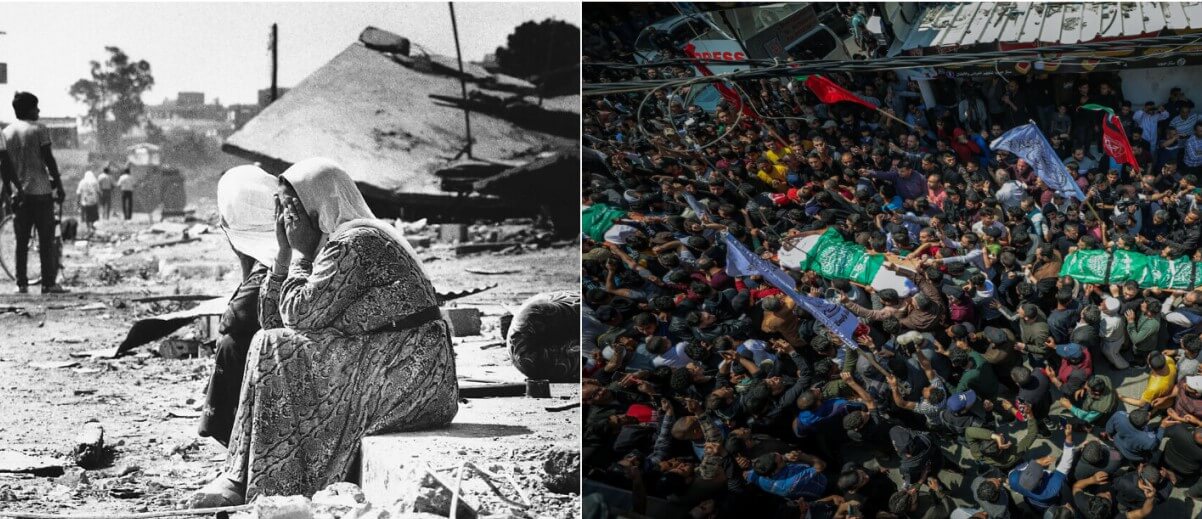 mondoweiss.net
mondoweiss.net
Excerpts: > Forty-one years ago, I was in Lebanon leading a group of ten U.S. relief and development directors hoping to introduce them to the extensive needs of impoverished Lebanese and Palestinian refugees. On June 4, 1982, around 3:00 p.m., we were on our way to the crowded Fakhani district of Beirut when a fleet of Israeli warplanes (U.S.-made F-16s) roared in from the Mediterranean Sea, dropping bombs on the area we were about to visit. We took cover in a hotel basement. After the bombing subsided, I phoned our hosts, who proposed we meet them another day as they were busy searching for survivors from the bombing. > We visited a Red Crescent hospital near the Sabra and Shatila Palestinian refugee camps the next morning. We were taken to a hospital wing that had been struck by the Israeli bombing the previous day. Suddenly air-raid sirens went off and we were rushed to the basement with the patients and hospital staff. Again, Israeli F-16s were bombing various targets in the area. About twenty minutes later a series of ambulances arrived at the hospital’s emergency entrance and unloaded stretchers carrying teenage girls — some having lost limbs and others enduring severe burns. Hospital workers had just unloaded 19 body bags with girls who had died. > Later, we learned that the UN staff had provided the Israeli military with the route of the Palestinian girls’ field trip, but the military commanders chose to ignore the information, and the three clearly marked UN school buses were targeted on the coastal road. > Sickened by this savagery, I felt we had to tell this story to a U.S. media outlet. We found the addresses and phone numbers of the CBS, ABC, and CNN Bureaus but only NBC answered. Mike Mallory, the NBC Bureau Chief, agreed to interview us. He warned us that all of their recent dispatches were cut by Israeli censors in the New York studios. He conducted a twenty-minute interview with our group, based on what we had witnessed. We learned later our interview was also rejected. > We left Beirut on Tuesday, June 8th, and when I landed in Paris, I called my staff, asking them to arrange media interviews the next day. One memorable interview was scheduled for Wednesday, June 9, with WMAQ, NBC-TV in Chicago ... I would be interviewed in Grant Park while an Israeli General would be opposite me in the studio. > He began the interview by stating that Israel was conducting a defensive war with “surgically precise bombings to root out PLO terrorist nests.’” I challenged his narrative, claiming Israel started the unprovoked war on June 4. I noted that, according to the Red Cross, most of the casualties were civilians. I gave several examples of the casualties, including the hospital wing hit by Israel on June 4 and the tragic case of the school girls with 19 dead and several wounded on the morning of June 5. The General was clearly upset by my remarks and then he said something that astounded me. “This is our final solution to the Palestinian problem.” > Having pursued extensive studies of the Nazi Holocaust, I communicated my shock, remarking, “I can’t believe what you just said, General. Isn’t this “final solution” language what the Nazis used concerning your people, the Jews? You, sir, have just endorsed genocide, wiping out an entire people, innocent men, women, and children. If this is Israel’s plan it is a war crime.” > The General tried to soften his statement, but I suggested that a proper response would be for him to apologize to the viewing audience and to the Palestinian and Lebanese people. When I returned to the office, Tim Weigel called and said the NBC switchboard lit up with more angry calls and threats than they had ever experienced. The news director said this was my last appearance on NBC-TV, which seemed a small price to pay for telling the truth. > Today we see members of Netanyahu’s Cabinet calling for “wiping out” entire Palestinian communities (Huwwara) and militant setters chanting, “We will replace you.” Meanwhile, western governments, led by the United States, refuse to hold Israel accountable for the murder of U.S. citizens (the journalist Shireen Abu Akleh) let alone the daily murder of Palestinians by the army and militant settlers. Gaza is bombed routinely with no accountability for those perpetrating the crimes. The Nakba of 1948 continues daily in multiple forms, and the conditions are ripe for another massive Nakba, echoing General Shromi’s chilling words: “This is our final solution to the Palestinian problem.” > A younger generation of Jews, Christians, and Muslims is rising up in Palestine and globally, applying the above analysis and organizing a global grassroots movement grounded in justice and only justice. They do not have the patience and timidity of my generation. They have learned from our failures and will not make the same mistakes in abandoning the liberation for the Palestinian people. They do not support an exclusivist Jewish state in any part of historic Palestine. Nor will they be intimidated by false accusations of antisemitism, bullying, and even death threats. Some are religious, and many are secular, but this matters little. They are committed to uniting across all lines of division and will not allow the divisive tactics of racism to thwart their quest for unity. > I know this generation understands both the urgency and utter crisis the Sheikh in Sabra and Shatila expressed in the wake of the Sabra/Shatila massacre: “Just tell the truth.” The mask is off. The impotence of the United Nations regarding Palestine has been exposed clearly by legal scholars and historians. The future will not be easy, nor will Palestine be liberated soon. The future is not with top-down political and military solutions. The future is with a massive grassroots global movement for justice in Palestine. A new day has already dawned, and the Zionist leadership knows they are losing credibility worldwide. Everyone is needed to join the global grassroots alternative to the Zionist settler colonial project that will continue the daily genocide of Palestinians.
> From 2010 to 2020, the world experienced mass protests. Yet, those protests have not brought about more democracy and freedom. Why did these protests lead to the opposite of what they supposedly demanded? In this episode, journalist Vincent Bevins joins the podcast to discuss his latest book, If We Burn: The Mass Protest Decade and the Missing Revolution (2023). I haven't read the book, but in this interview they cover the role of mass media in how it portrays and effects street protests, covering examples in Brazil, also touching on the Arab Spring, Euromaidan, and Hong Kong, discussing what the mass media selectively covers and leaves out, how attracting media attention has altered what kind of protests occur, and how decentralized movements without clear demands, a structure of decision making, or plans for how to exercise power are subjected to being co-opted.
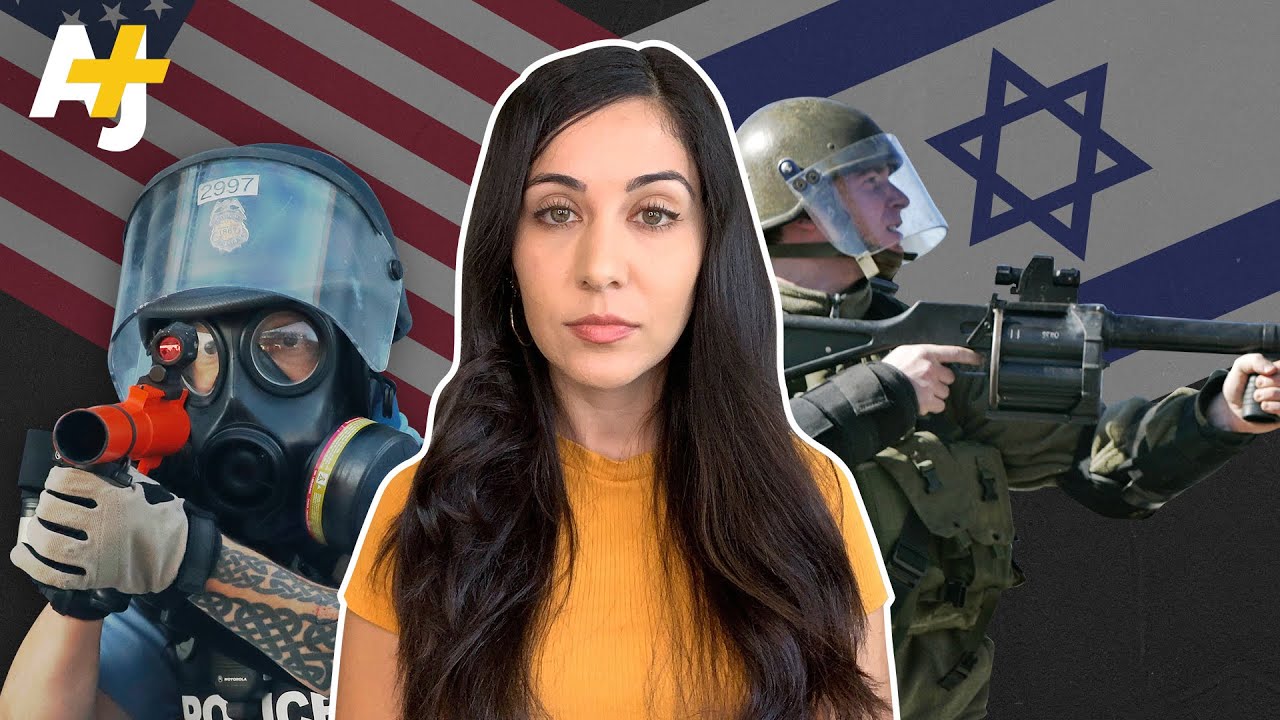 www.youtube.com
www.youtube.com
Video from 2020
 www.who.int
www.who.int
>As the United Nation’s agency responsible for public health, the World Health Organization (WHO) strongly condemns Israel's repeated orders for the evacuation of 22 hospitals treating more than 2000 inpatients in northern Gaza. The forced evacuation of patients and health workers will further worsen the current humanitarian and public health catastrophe. > >The lives of many critically ill and fragile patients hang in the balance: those in intensive care or who rely on life support; patients undergoing hemodialysis; newborns in incubators; women with complications of pregnancy, and others all face imminent deterioration of their condition or death if they are forced to move and are cut off from life-saving medical attention while being evacuated. > >Health facilities in northern Gaza continue to receive an influx of injured patients and are struggling to operate beyond maximum capacity. Some patients are being treated in corridors and outdoors in surrounding streets due to a lack of hospital beds. > >Forcing more than 2000 patients to relocate to southern Gaza, where health facilities are already running at maximum capacity and unable to absorb a dramatic rise in the number of patients, could be tantamount to a death sentence. > >Hospital directors and health workers are now facing an agonizing choice: abandon critically ill patients amid a bombing campaign, put their own lives at risk while remaining on site to treat patients, or endanger their patients’ lives while attempting to transport them to facilities that have no capacity to receive them. Overwhelmingly, caregivers have chosen to stay behind, and honor their oaths as health professionals to “do no harm,” rather than risk moving their critically ill patients during evacuations. Health workers should never have to make such impossible choices. > >Additionally, tens of thousands of displaced people in northern Gaza are seeking refuge in open spaces in or around hospitals, treating them as havens from violence as well as to protect the facilities from potential attacks. Their lives, too, are at risk when health facilities are bombed. > >There are verified reports of deaths of health care workers and destruction of health facilities, which denies civilians the basic human right of life-saving health care and is prohibited under International Humanitarian Law. > >WHO calls for Israel to immediately reverse evacuation orders to hospitals in northern Gaza, and calls for the protection of health facilities, health workers, patients, and civilians. WHO also reiterates its calls for the immediate and safe delivery of medical supplies, fuel, clean water, food, and other humanitarian aid into Gaza through the Rafah crossing, where life-saving assistance – including WHO health supplies that arrived earlier today – is currently awaiting entry.
